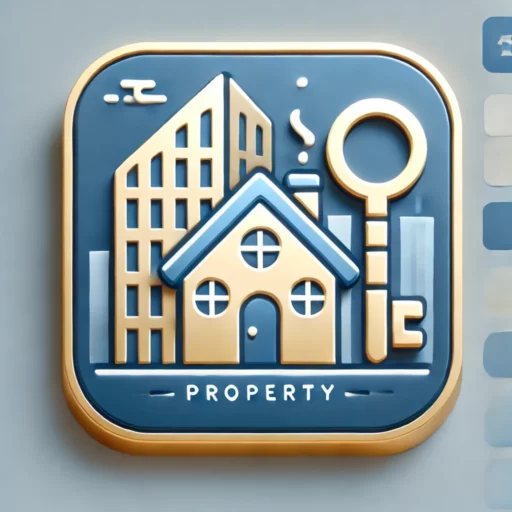So, you’re finally ready to view a property—exciting, right? Whether you’re a first-time buyer or seasoned investor, this step is make-or-break. But it’s easy to get swept up in fresh paint and granite countertops without digging deeper. That’s why asking the right questions could save you thousands—or make you thousands.
Here are 8 smart, must-ask questions that help you avoid regrets and make savvy property decisions.
Why Asking the Right Questions Matters
Let’s face it—property viewings can feel a bit rushed. You’re trying to imagine living there, assess the layout, and chat with the agent all at once. But if you don’t ask the right questions, you might miss out on key info that affects your finances, safety, or lifestyle.
The goal? To uncover anything not obvious at first glance. Think of it like dating—you want to know what you’re really committing to before saying “yes.”
1. What’s Included in the Sale?
Fixtures vs. Fittings – Know the Difference
It might look like you’re buying a fully equipped home, but are you?
Ask what items are actually staying. Fixtures (like built-in wardrobes and kitchen cabinets) usually stay. Fittings (like freestanding furniture, appliances, or even curtain rods) may go unless specified.
Clarify Additional Costs
Sometimes, sellers offer extras—like a washer/dryer—for an added fee. Clarify these details in writing. It also helps avoid disappointment (or disputes) later in the process.
Want more clarity? Check out property buying tips for new homeowners.
2. Are There Any Structural Issues?
Spotting Red Flags During the Viewing
Cracks in the walls, uneven flooring, damp patches, and sticking doors or windows—these could all be signs of structural damage.
If anything seems off, take photos and ask questions on the spot. Don’t rely on surface beauty.
Should You Hire a Surveyor?
Absolutely. Especially for older homes or if anything raises a red flag. It might cost upfront, but it’s nothing compared to surprise foundation work later.
You’ll also find helpful legal info on landlord requirements if you’re purchasing to rent.
3. How Old is the Property and Its Key Systems?
Roof, Plumbing, and Electricals – Lifespan Guide
These are the backbone of any home. Roofs typically last 20–30 years. Plumbing and electricals can vary wildly depending on maintenance and materials.
Ask about:
- Roof replacement year
- Last rewiring
- Plumbing material used
Renovation Costs You Might Face
Old systems may need updating soon. Understanding this lets you plan ahead and budget smarter—or negotiate a lower price.
For investors, this can affect your property ROI.

4. What’s the Local Area Like?
Noise, Schools, Crime, and Community Vibe
You’re not just buying a house—you’re buying into the neighborhood. Visit at different times of day. Ask about nearby noise sources (highways, nightclubs, etc.), school ratings, and crime rates.
Use Location to Gauge Property Growth Potential
Location drives value. A good neighborhood today might be a goldmine tomorrow. Track changes on the Property Trends page to predict value appreciation.
Also, browse our tag for market trends and hot growth areas.
5. Why is the Owner Selling?
Look for Clues Behind the Sale
They might be relocating for work—or there might be noisy neighbors. You’ll never know unless you ask.
Even if they don’t spill the full truth, how the agent responds could give you clues.
Use This Insight for Negotiation Leverage
If it’s a quick sale or divorce, you might be in a better position to offer slightly lower and still close the deal.
Explore property selling tips for more insight from the seller’s perspective.
6. How Long Has the Property Been on the Market?
Long Listings May Signal Trouble
A home that’s been sitting unsold could have an issue—either price, condition, or something less obvious.
Combine with Market Trends Analysis
Use this data with your research from Qialma Property’s Real Estate Trends and Real Estate 2025 tags to decide whether it’s priced correctly for current conditions.
7. Has the Property Had Any Renovations or Repairs?
Legal Disclosures and Property History
Ask for records of any major repairs or renovations. Especially those involving structure, plumbing, or electricals.
Also ask: Were permits obtained? Was work done by licensed professionals?
Watch Out for Quick Flips
Some properties are flipped quickly for profit. If it was purchased and renovated in the last 6–12 months, dig deeper. Sometimes updates are cosmetic, covering deeper issues.
Learn more about smart property investment strategies and pitfalls to avoid.
8. What Are the Running Costs?
Council Tax, Utilities & Maintenance
Owning a home is one thing—maintaining it is another. Ask about:
- Council tax band
- Monthly utility bills
- Garden or roof maintenance costs
Consider Rental Yield or ROI for Investors
If you’re buying as a landlord, you’ll want to understand potential profit margins. Check out our rental property and rental laws sections to know your legal and financial responsibilities.
Bonus Tip: Ask About Property Investment Potential
If you’re looking beyond just living in the home and thinking long-term wealth building, ask about appreciation trends, rental demand, and nearby developments.
Use Qialma Property Investment tools and check real estate tips to plan your next move.
Conclusion
A viewing isn’t just a tour—it’s your best chance to peel back the layers of the property. From noisy neighbors to hidden damp, asking the right questions can save you heartache and cash. Whether you’re buying your forever home or an investment rental, these 8 questions arm you with the knowledge you need to make a confident, informed decision.
Explore more about real estate with Qialma Property and make your next move your best one yet.
FAQs
1. What’s the best time of day to view a property?
Midday or early evening is ideal—you’ll get a good idea of natural light and neighborhood noise levels.
2. Should I bring someone with me to the viewing?
Yes! A second set of eyes can help catch things you might miss, especially during a first-time viewing.
3. Can I take photos or videos during the tour?
Usually yes, but ask permission first. It’ll help jog your memory later when comparing properties.
4. What’s a property chain, and why does it matter?
It refers to linked sales—if one falls through, others can be delayed. Fewer links = less risk.
5. How many times should I view a property before making an offer?
At least twice. The first for a feel, the second for details you may have overlooked.
6. Is it rude to open cupboards and closets during a viewing?
Not at all. You’re checking storage space and potential hidden issues—just be respectful.
7. What should I check outside the property?
Roof condition, drainage, garden upkeep, and neighbor proximity—all vital clues.

